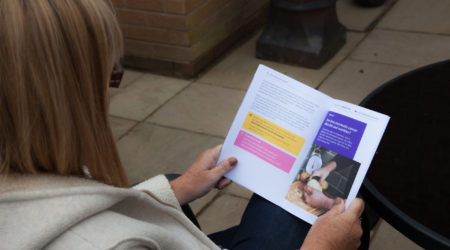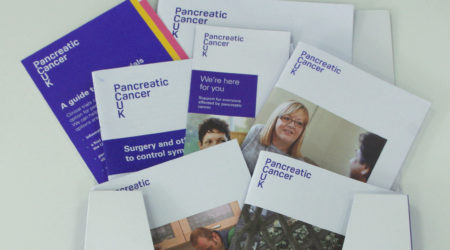Our specialist nurses share information on:
- What is pancreatic cancer
- Just diagnosed with pancreatic cancer. What happens now?
- Diagnosed with pancreatic cancer that can be removed by surgery (stages 1 & 2). What does this mean?
- Diagnosed with locally advanced or borderline resectable pancreatic cancer (stage 3). What does this mean?
- Diagnosed with advanced, metastatic or stage 4 pancreatic cancer. What does this mean?
- What to expect if someone you care for has pancreatic cancer
- Chemotherapy for pancreatic cancer
- How is chemotherapy given?
- Surgery and pancreatic cancer
- Clinical trials for pancreatic cancer
- Diet and pancreatic cancer
- Taking pancreatic enzyme replacement therapy (PERT)



